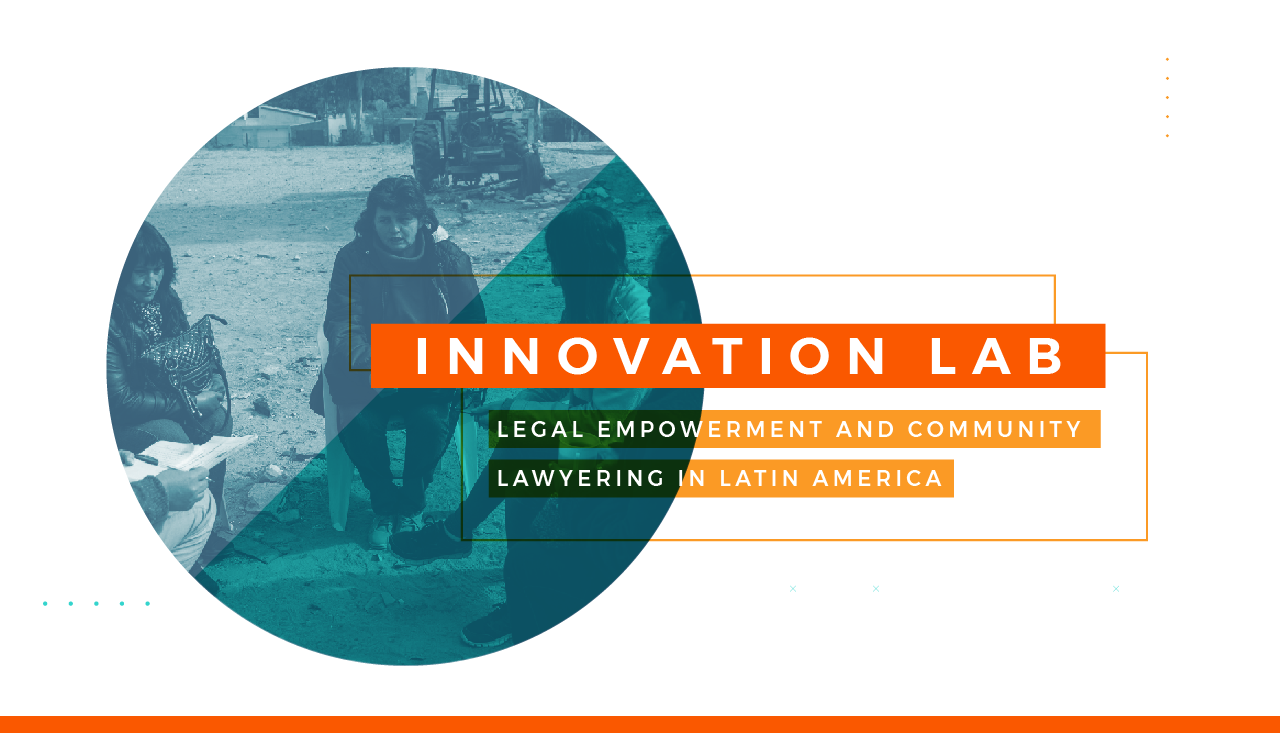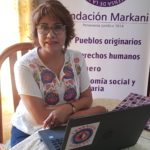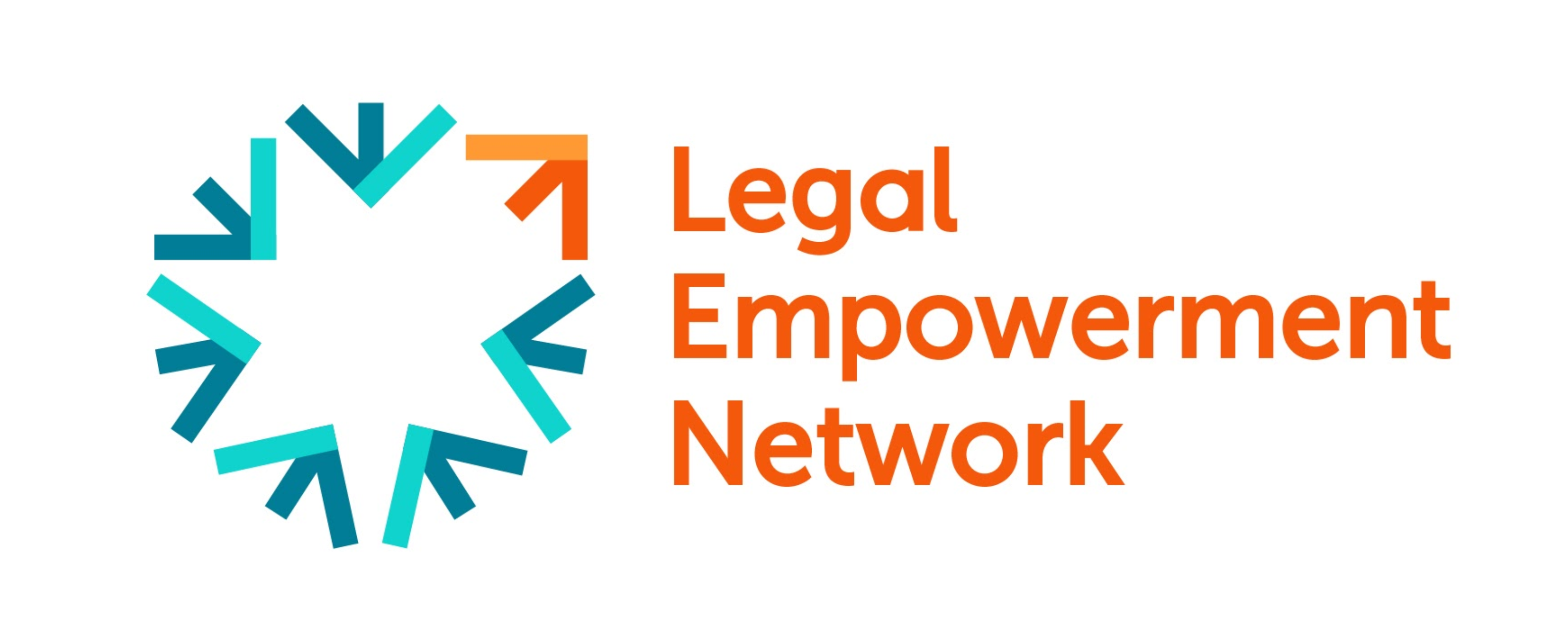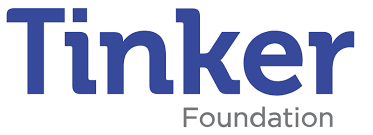About the Innovation Lab
The Innovation Lab is a contest organized by the Legal Empowerment Network -with the support of the Tinker Foundation-, which aims to support and strengthen Latin American organizations working alongside communities and marginalized groups to help them know, use and shape the law.
After receiving more than 90 applications from 16 Latin American countries, in August 2020 a panel of judges selected the 6 participant organizations for the Innovation Lab: Associação de Defesa Etnoambiental Kanindé (Brazil), Colectiva Amorales (El Salvador), Fundación Markani (Argentina), Fundecom (Nicaragua), Grupo de Acciones Públicas de la Universidad del Rosario (Colombia), Unión Verapacense de Organizaciones Campesinas (Guatemala).
The Legal Empowerment Network provided selected organizations with 5000 USD, as well as technical support, capacity-building and monitoring. Organizations participated in learning exchange calls, interviews and capacity-building sessions around topics selected by them as prioritary, such as fundraising.
The Innovation Lab projects where implemented between September 2020 and April 2021, during a critical period in the region caused by the COVID-19 pandemic and its impact on historically marginalized communities, natural disasters such as huracanes ETA and IOTA, and the political and social context of many countries in the region were authoritarianism, nativism and rights regression are a daily reality.
In the wake of this situation, participating organizations had to overcome great challenges, both because of the situation and needs of the communities they work with, and at an internal and personal level. In order to do this, they innovated and looked for alternative ways to support the communities that they work with. Below, we share a brief summary of the main results of the Innovation Lab projects, a result of those efforts. For more information about the Innovation Lab, click here.

In Colombia, the Grupo de Acciones Públicas (GAP) of Universidad del Rosario created the Youth Network for Environmental Democracy in Colombia’s Regions (Red de jóvenes por la democracia ambiental en las regiones de Colombia, RAÍCES).
They selected 10 young activists (4 women and 6 men) of 5 regions to participate in the pilot online course “I protect the environment in my region”, out of more than 100 applications.
The project has achieved to bring legal mechanisms, constitutional concepts and the general functioning of the State closer to the young participants, guaranteeing a transformative legal empowerment process.
At the same time, the project also impacted in the group of 15 tutors that participated in the project (all students of the Legal Clinic at GAP) who accompanied the course participants and established a mutual learning connection.
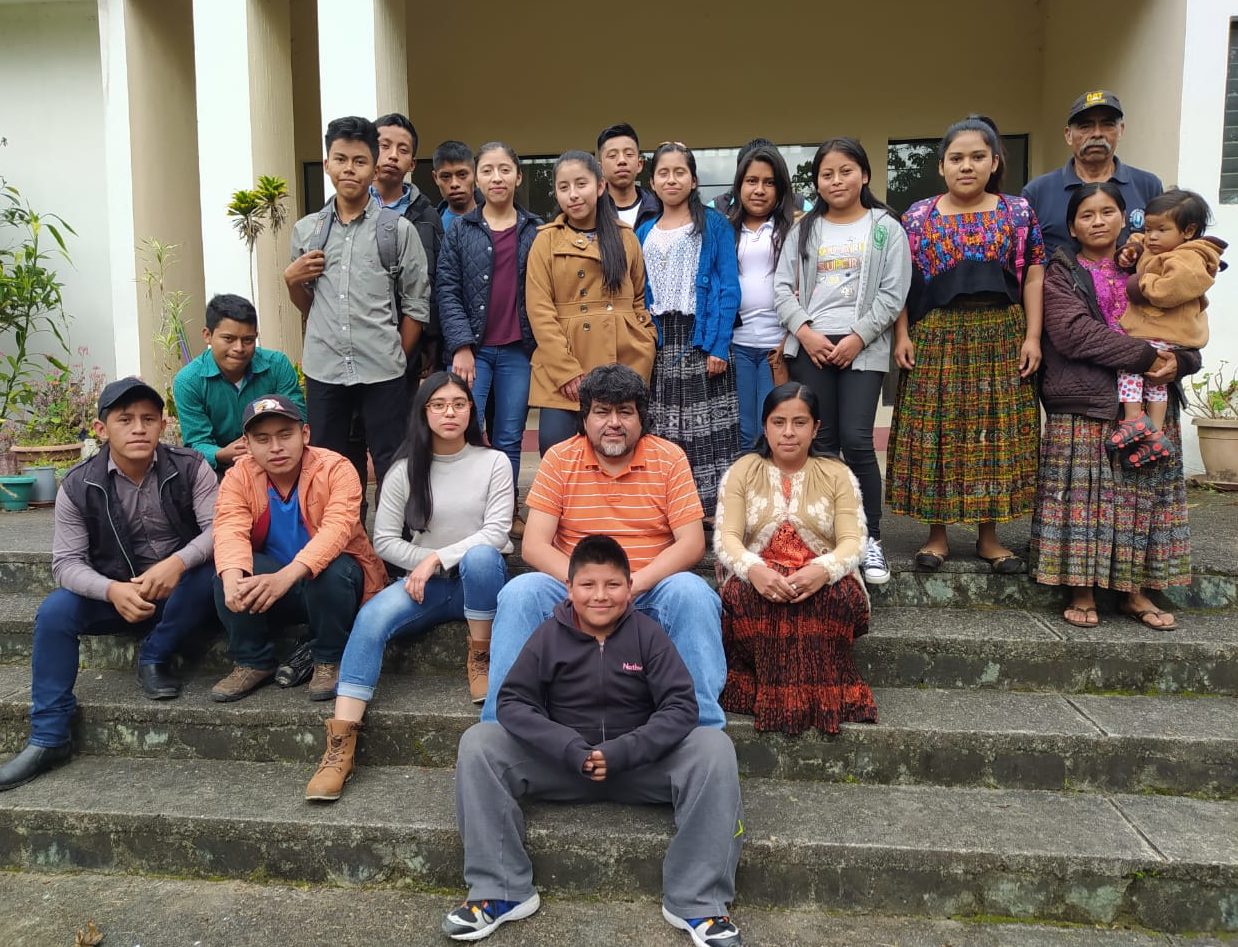
Training participants.
In Guatemala, the Unión Verapacense de Organizaciones Campesinas (UVOC) created the Network of Legal, Community and Ancestral Promoters for the defense of life, human rights and ancestral territories (Red de Promotores Jurídicos, Comunitarios y Ancestrales en defensa de la vida, los derechos humanos y los territorios ancestrales), and implemented the first training process of the Network, with 20 youth participants.
The project has contributed to position the situation of defenders at the national level. A tangible result is the establishment of a High Level Roundtable with the participation of the Vice-Presidency of the Republic, to address technically, legally and ancestrally the issues of criminalization, defense of the territory, and human rights defenders, with the participation of OHCHR, CALDH, PDH.
In these 8 months, the UVOC has also accompanied the families of threatened, disappeared or assassinated indigenous leaders, such as the enforced disappearance of indigenous leader Carlos Enrique Coy, and the assassination of Abelardo Quej Ixim, both cases still unresolved.
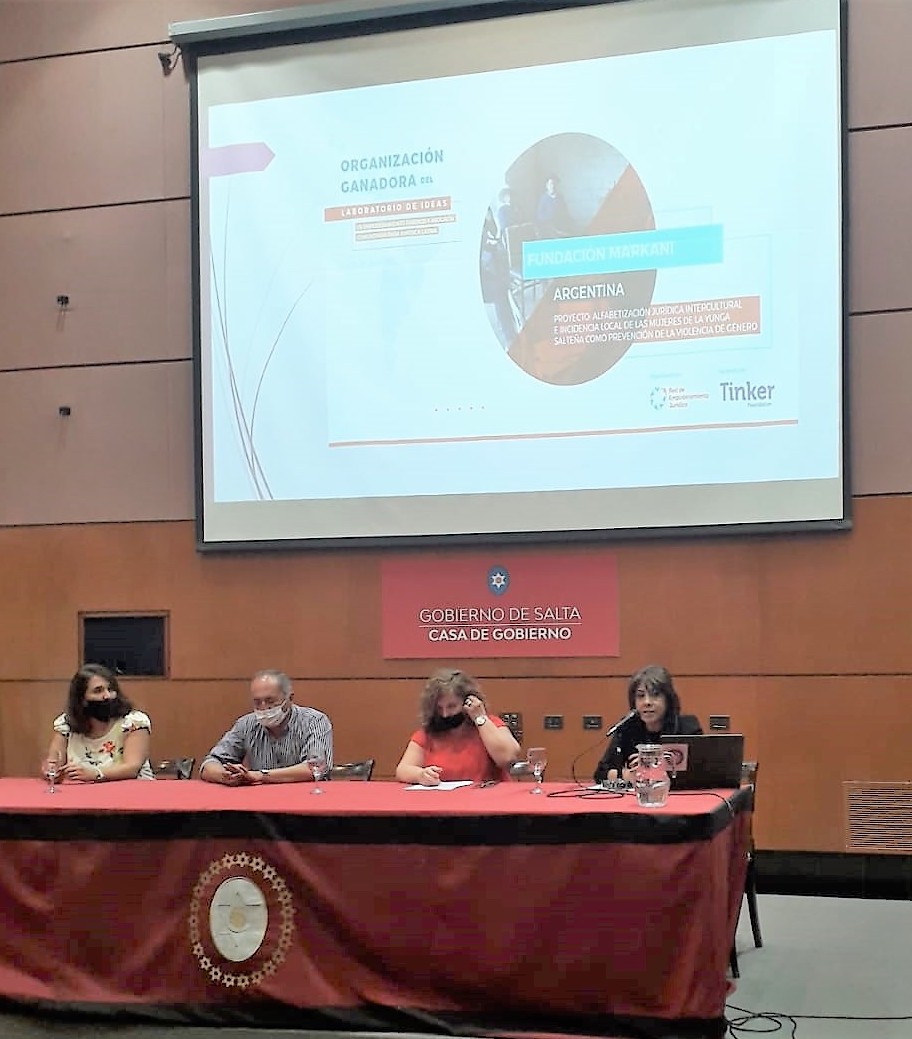
Stella Maris, president of Fundación Markani, shares the experience and results of the project in an open forum organized by the Government of Salta.
In Argentina, Fundación Markani implemented a legal literacy project on gender-based violence and intercultural mediation for originary kolla and peasant women from the Yunga Salteña.
The project achieved to train and certify 52 participants (both students, and community leaders) as social community legal promoters, through 12 training programmes using community radio.
In order to do this, the organization engaged the different community councils and authorities, as well as munnicipal and provincial authorities for the referral and attention of cases of women in situations of violence.
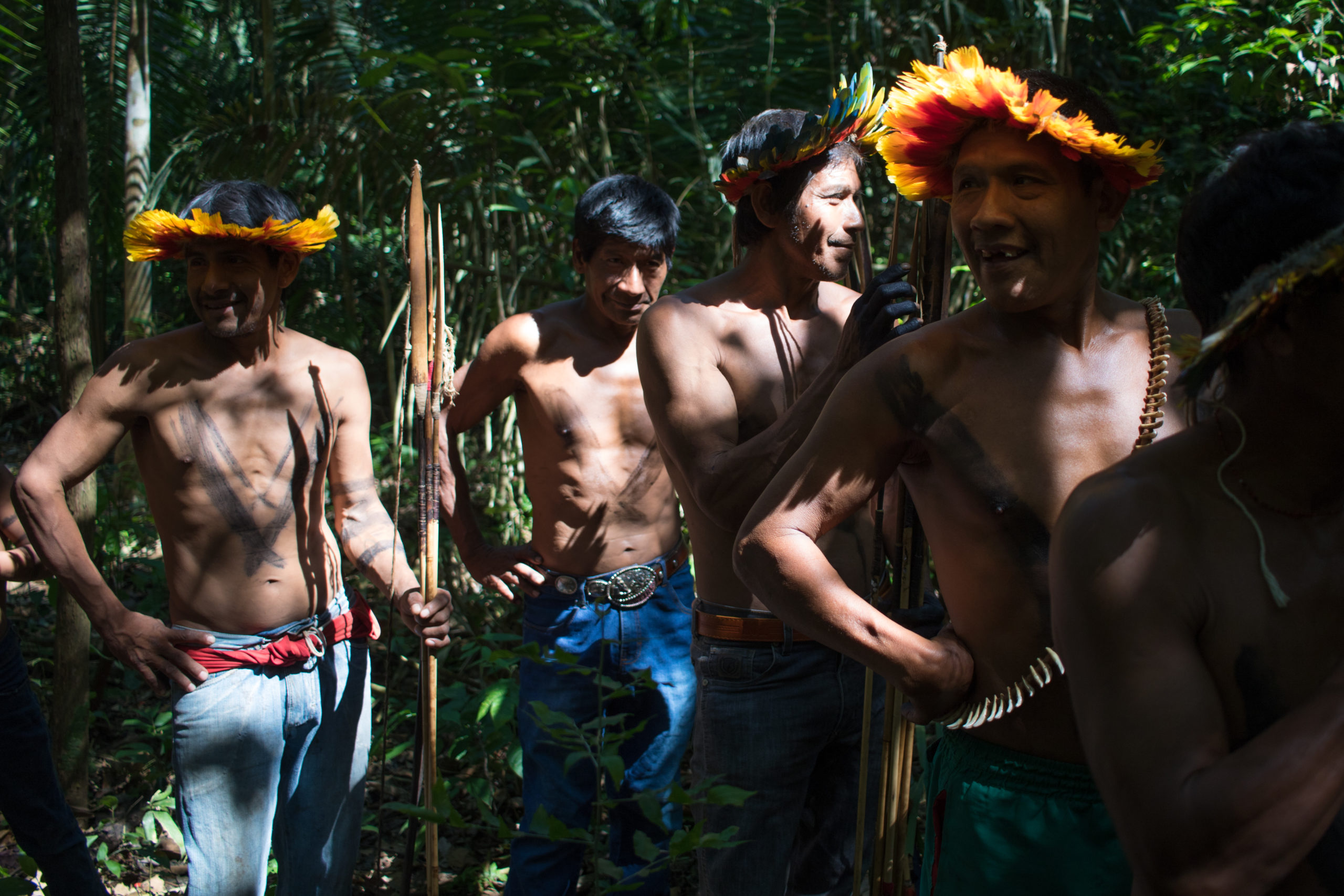
© Gabriel Uchida
In Brazil, Associação de Defesa Etnoambiental Kanindé strengthened its legal core, and provided advice, accompaniment and legal training to multiple indigenous associations and organizations, reaching more than 1600 people from indigenous communities in the state of Rondonia.
At the same time, the organization accompanied the case of the young indigenous defender Ari Uru Eu Wau Wau, assassinated on April 18 2020, and the persecution of indigenous defender Almir Suruí (coordinator of Associación Metareilá), among others.
In 8 months, the project has achieved to equip indigenous organizations so that they can continue their fight for a healthy environment and the respect of their rights, not only in the political sphere, but also in the legal and juridical sphere.
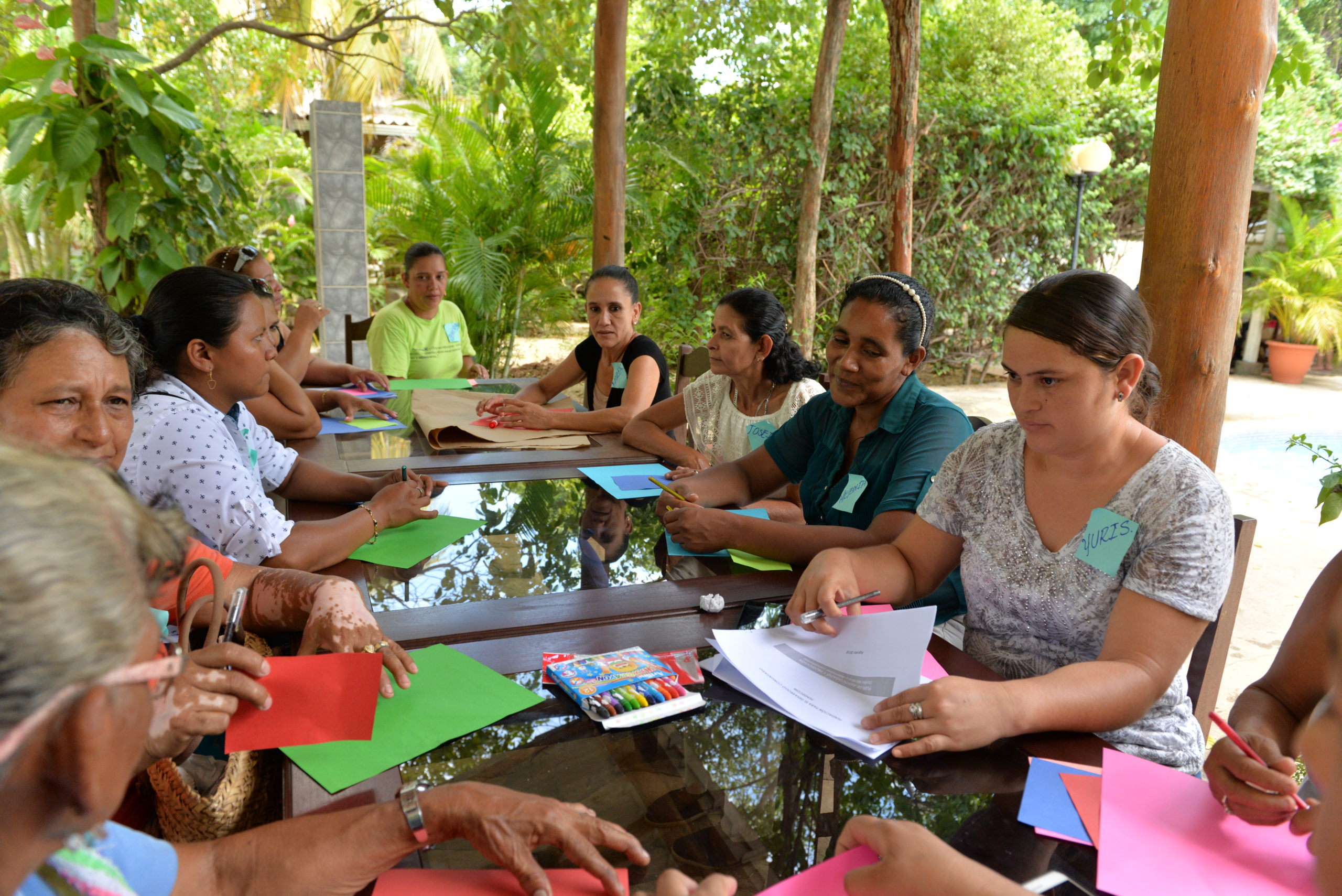
Participants in a capacity-building workshop for legal promoters before the COVID-19 pandemic.
In Nicaragua, Fundecom trained and supported 60 community defenders in the defence and promotion of the human rights of women and girls in situations of violence. Moreover, it is estimated that 3000 people received information through the materials created by the organization.
In the COVID-19 context, the organization implemented virtual capacity-building sessions about topics such as the Constitution, legislation for the protection of girls and women, legal protocols for the attention of victims of violence, alternative access to justice routs, how to support other women in situations of violence.
In order to do that, they distributed equipment and phone credit among defenders, and they trained them in the use of relevant digital platforms. In addition, Fundecom established a phone service for psychological attention for women in situations of violence, and an online service to promote alternative access to justice routes from the community; so that women, with the needed support but without the need of lawyers, can access justice.

Logo of the campaign “Talking about Laws”.
In El Salvador, Colectiva Amorales started the social media campaign “Talking about Laws”, to provide information and advice to women in situations of violence, and raise awareness among the population about situations of violence and abuse against women and girls. In particular, the rights, guarantees and mechanisms regarding the Special Comprehensive Law for a Live Free of Violence for Women (Ley Especial Integral para una Vida Libre de Violencia para las Mujeres, LEIV).
Through the project’s Instagram and Facebook accounts, Colectiva Amorales has achieved to reach more than 400 people, and an average of 1000 people have reproduced the content of the online conversation spaces.
Moreover, the number of users sharing content for the campaign, and accessing the organization’s legal advice services have incremented. In the 8 months that the project lasted, 15 women received direct accompaniment through the legal advice services.

